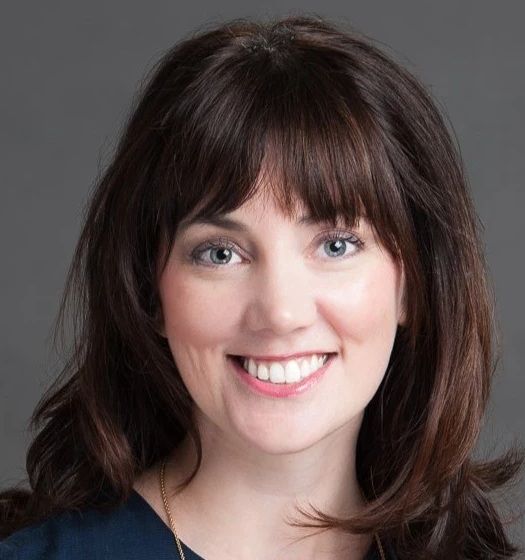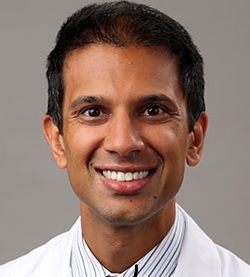- Center on Health Equity & Access
- Clinical
- Health Care Cost
- Health Care Delivery
- Insurance
- Policy
- Technology
- Value-Based Care
What Will AI in Health Care Look Like in the Future?
Artificial intelligence (AI) transforms oncology by enhancing clinical decision-making, improving patient outcomes, and shaping future health care training, as discussed by experts at Tennessee Oncology's “Tech Innovations in Community Oncology."
Today, artificial intelligence (AI) helps oncologists identify biomarkers, select treatments, schedule appointments, and even write medical notes.
What’s next? And how can the health system train a future workforce to use these tools?
At the June 19, 2025, meeting “Tech Innovations in Community Oncology,” leaders from Tennessee Oncology took on these questions, with moderator Casey Chollet-Lipscomb, MD, FASTRO, chief medical officer for Tennessee Oncology, and panelists Lalan Wilfong, MD, senior vice president, Value-Based Care, Thyme Care; and Ravi Parikh, MD, MPP, FACP, oncologist and director of the Human Algorithm Collaboration Lab, Emory University.
Casey Chollet-Lipscomb, MD, FASTRO | Image: ASTRO

Lalan Wilfong, MD | Image: Thyme Care

Ravi Parikh, MD, MPP, FACP | Image: Emory University

Chollet-Lipscomb first asked both panelists where AI will help in clinical decision support.
Wilfong, who practices part-time, said a recent case showed AI’s potential in decision support. He’d just diagnosed a person with multiple myeloma at age 50—someone much younger than the typical patients in their 70s and 80s. Wilfong was cautious and said he took time to review literature and connect with colleagues to prescribe the appropriate 4-drug regimen.
"I could totally see using AI in the future to take all of the clinical information that I've gotten, making sure I didn't miss anything,” Wilfong said. AI might have saved time on the research portion of his quest so he could spend more time evaluating the information.
For Parikh, AI offers the potential to move beyond prognostic biomarkers to predictive ones. But to get there, he said, AI-based biomarkers should be subjected to the same standards as the many companion diagnostics that have been developed in randomized clinical trials. Compared with the multiple trials involving pembrolizumab (Keytruda; Merck) and patients whose tumors have PD-L1–high expression, he said, “There’s no prospective randomized trial that compares use of these AI-based biomarkers for stratifying populations, [asking whether] to give long-term hormonal therapy versus none. And yet, it still makes its way into [National Comprehensive Cancer Network] guidelines.”
Chollet-Lipscomb asked Parikh more about his research on predictive AI—and how it could help physicians move beyond their initial read of the chart.
“I have a strong belief that what we ought to be working towards for AI is not towards prognostic biomarkers, predicting whether someone is going to live or die... [but] move towards predictive biomarkers,” Parikh said. “Can I use AI to make a decision about which therapy to use, compared to what I would do if I didn't use AI?"
This is an area that merits FDA scrutiny, he said. Effective AI tools should change treatment decisions rather than simply provide statistics, but many of today’s AI solutions "give you a percentage number,” Parikh said. “That doesn't really tell me whether I ought to be giving them pembro [pembrolizumab] vs not giving them pembro.”
Wilfong agreed, saying the limits are compounded by today’s way of performing clinical trials. A trial may report that 69% of patients on a given therapy will live longer than those receiving standard of care. But for patients, predictive markers don’t answer, “Am I one of the 69%, or am I not? Am I going to be one that has the grade 4 toxicity? Or am I going to be one that sails through this?”
Tests that have measured AI performance on medical board exam questions don’t reflect reality, Parikh said. The important test is whether AI results in positive outcomes when embedded into the daily workflow.
“Real patient cases are a mix of positive prognostic factors, negative prognostic factors, and factors that we have no idea whether they're positive or negative,” he said.
AI's potential rests with its ability to sift through 5 or 6 approved therapies for an indication and select the one that best aligns with an individual patient's characteristics, Parikh said. Right now, he explained, there are FDA limits on whether an AI-based diagnostic can recommend one therapy over another. In health outcomes research, Wilfong called for AI to offer insights beyond cost considerations, helping physicians make clinical choices that "actually helps that patient live longer with fewer toxicities and have a better quality of life.”
Both Wilfong and Parikh said AI has other limitations; Parikh said this is especially true when using AI tools to predict toxicity. This stems from data reported in trials themselves, he said. “We don't have great data on patient reported outcomes for like genotoxicity,” which is how treatment affects mutations in patient cells. “They don't report grade 1 and 2 toxicity all that well,” he added, “And forget about trying to train an AI based on real-world toxicity data, because we don't know how to collect toxicity data in the real world."
Yet AI is here, and the question of how to train future physicians to use it appropriately looms large. A physician’s own judgment, based on training and experience, must be emphasized, Parikh said; interrogating an AI tool on why it made a decision is crucial.
“If we train the physicians or the residents or fellows to trust the AI no matter what, then we're sort of training them to distrust their own clinical intuition that makes a much bigger role in a treatment decision than what an AI did."
